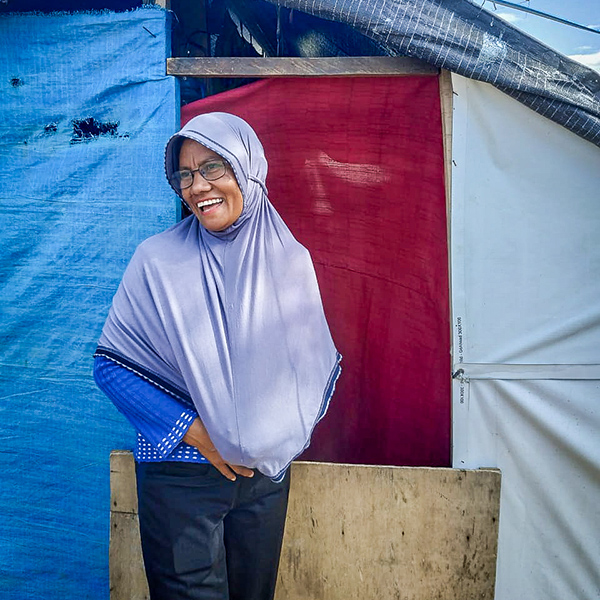Stories of Change

Juarni works in Sigi District, Indonesia as a Village Subfield Officer.
In a camp for displaced families, Juarni is helping her neighbors protect their health
Before the deadly earthquake and tsunami struck in September, Juarni was a health post worker who loved her job. Like so many of her neighbors, her life changed that day. Months later, Juarni and her family were still in a camp for displaced people and were working day in and day out to cope with their new reality.
In the early days of the crisis, as people settled into life in the camp, Juarni noticed something. There were a lot of unhealthy conditions in the camp. “Before CWS started delivering water or latrines were built, things were very unhealthy,” she says. “We had to find water and places to defecate. Many children had diarrhea and other illnesses because they were drinking unsafe water, and families had let hygiene fall by the wayside.”
In those days, families had to cope with countless different challenges. Hygiene was just one of them.
Things have changed a lot since those early days. CWS asked Juarni to join a group of health promotion volunteers who work with camp residents to improve their hygiene practices. Though her new work is different than her old position as a health post worker. But Juarni says she is happy to know that she can still help her community protect its health. To work in the camp setting, which is quite different from her village, Juarni and the others joined a training before starting their health promotion work. During the training, she shared her experience and learned new ways to motivate people to live as hygienically as possible in the camp. All Juarni’s co-workers are women, which is common because women traditionally take care of family wellness. The challenge in the camps, as Juarni told CWS staff early on, is that people’s displacement to living in such inferior circumstances means the volunteers often must work hard to manage the camp’s collective sanitation and hygiene situation.
To help with this, Juarni and other volunteers visit the camps to find and help solve sanitation problems and talk to mothers about best practices to maintain hygiene. Juarni’s persistence and leadership is valuable. She said, “I get so happy when I visit a camp for a second or third time and the mothers tell me stories about their successes, including that their families are now using the communal latrines and that their children are back to the habit of washing their hands before they eat.”
CWS continues to support Juarni and other health workers while they continue helping their neighbors stay healthy. In addition, CWS continues daily distribution of tens of thousands of gallons of water in to spots where over 10,000 people come to get clean water and information about making it safe for cooking and drinking. Other relief and recovery work includes more latrine-building and next-level transitional shelters.
